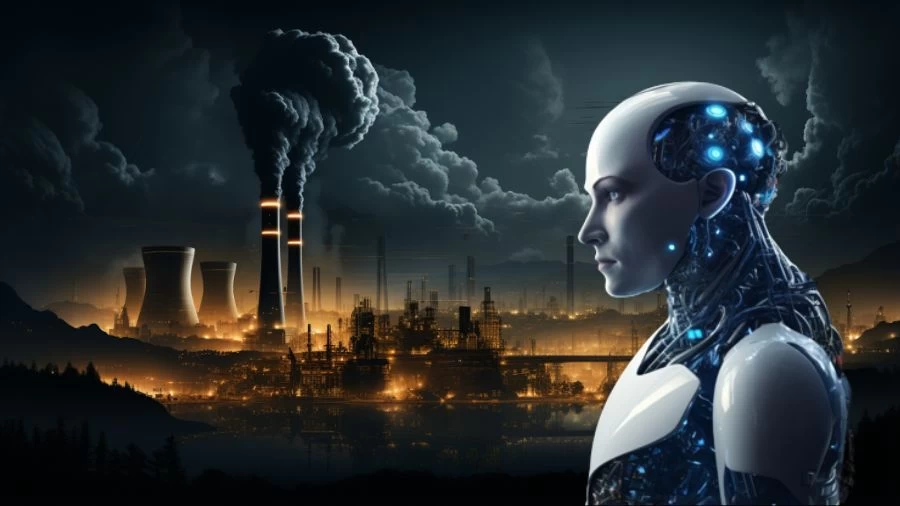
- Home »
- Technology »
- Will Nuclear Reactors Drive Microsoft's AI into the Future?
Will Nuclear Reactors Drive Microsoft's AI into the Future?
Microsoft is charting a bold course towards the future, contemplating the utilization of cutting-edge nuclear reactors to power its data centers and AI systems and mainly its interest appears to center around small modular reactors (SMRs).
Published Sep 27, 2023 | Updated Sep 27, 2023 | 📖 3 min read
Will Nuclear Reactors Drive Microsoft's AI into the Future?
Microsoft is taking a bold step towards the future by considering next-generation nuclear reactors to power its data centers and AI systems. In a recent job listing for a principal program manager, the company indicated its interest in using advanced nuclear technology for its energy needs.
The Challenge of Using AI
Data centers, essential for cloud services and AI operations, consume massive amounts of electricity. Meeting the energy demands of AI, which is a vital part of Microsoft's future plans, presents a significant challenge, especially in terms of sustainability and climate goals.
Nuclear energy, known for its minimal greenhouse gas emissions, has long intrigued Microsoft co-founder Bill Gates. While it offers a promising solution for reducing emissions, it also poses challenges related to radioactive waste disposal and uranium supply chains.
Microsoft's Bet on Advanced Nuclear Reactors
Microsoft's job listing hints at its focus on small modular reactors (SMRs). These next-generation reactors are more cost-effective and easier to build than their predecessors. Microsoft is exploring their potential to provide clean and reliable energy for its data centers and AI operations.
While SMRs offer several advantages, they require highly enriched uranium fuel (HALEU), which has supply chain and waste management implications. Establishing a domestic uranium supply chain and addressing nuclear waste storage are critical challenges.
Bill Gates' Involvement
Bill Gates, a proponent of nuclear energy, chairs TerraPower, an SMR development incubator. However, TerraPower stated it currently has no agreements to supply reactors to Microsoft.
In addition to SMRs, Microsoft has invested in Helion, a company working on futuristic fusion power. Fusion, a cleaner energy source, is still under development but holds immense potential.
As the world races against climate change, Microsoft's pursuit of advanced nuclear and fusion energy sources showcases its commitment to sustainable innovation. While challenges persist, the company's determination to embrace clean energy for its AI future remains clear.
Is Bill Gates Building a Nuclear Power plant?
Yes, Bill Gates and his energy company, TerraPower, are planning to build a cutting-edge nuclear power plant in Kemmerer, Wyoming. Despite Wyoming being a major coal-producing state, Gates and TerraPower chose the location due to its robust transmission infrastructure and pro-business atmosphere.
This decision has sparked mixed reactions in the community, with some viewing Bill Gates as a local hero for investing in green energy and advanced nuclear technology, while others oppose his stance on phasing out coal.
The nuclear power plant will utilize next-generation technology called natrium, powered by sodium-cooled reactors, which are three times more efficient than traditional water-cooled reactors and produce significantly less nuclear waste. The plant is expected to be operational by 2029 and could potentially bring economic growth to the region.
Embark on a captivating journey through the cutting-edge world of Technology with MarketsHost as your expert guide.
Will Nuclear Reactors Drive Microsoft's AI into the Future - FAQs
1. What is Microsoft's interest in nuclear reactors?
Microsoft is exploring next-generation nuclear reactors to power its data centers and AI, aiming for cleaner energy sources.
2. Why is nuclear energy considered for AI and data centers?
Nuclear energy offers a reliable and clean power source that can help meet the energy demands of data centers and energy-intensive AI applications.
3. What technology is Microsoft focusing on for nuclear power?
Microsoft is particularly interested in small modular reactors (SMRs) as a cost-effective and efficient nuclear power solution.
4. Are there concerns about using nuclear energy for data centers?
Yes, there are challenges, such as the supply of enriched uranium and nuclear waste management, that need to be addressed when considering nuclear power for data centers.
5. Is Bill Gates involved in Microsoft's nuclear energy endeavors?
Bill Gates, co-founder of Microsoft, is also associated with TerraPower, an incubator developing SMR designs, although there are no current agreements to sell reactors to Microsoft.



